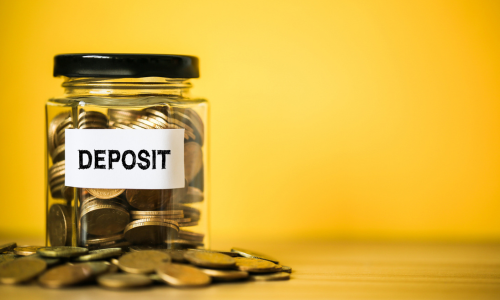
When renting a property, you are required to pay an upfront deposit. A deposit is a sum of money that is collected before you begin your lease agreement, which acts as protective insurance. The deposit is refundable at the end of the tenancy agreement if the tenants respect the property and meet their obligations as tenants. A deposit is usually the cost of one month's rent, so when moving into a rental property, expect to pay two month’s rent upfront at the beginning to cover the cost of the deposit.
Why do we need to protect deposits? Deposit protection schemes were introduced in 2007 as part of the Housing Act, so all assured-shorthold tenancy agreements that require a deposit are subject to the legislation.* Once the deposit has been taken, the letting agent or landlord has up to 30 days to protect the deposit. If the correct procedure is not followed to protect the deposit, then they could be charged up to three times the amount of the original deposit and will not be able to serve a Section 21 notice to the residing tenants if they require the property. It is a legal requirement to register a deposit in a government-approved scheme.
Different types of deposit protection schemes Your letting agent or landlord has the option of using three different government-approved deposit schemes. Regardless of the scheme they choose, your deposit will receive equal protection. Your tenancy agreement will have information on what scheme your landlord or letting agent will be using, and within 30 days you should receive confirmation and the prescribed information in writing.
The deposit protection schemes are:
- Deposit Protection Service
- Mydeposits
- Tenancy Deposit Scheme
How can I protect my deposit as a tenant? Once you've given your deposit to the landlord or letting agent, as a tenant the only way to properly safeguard your deposit is by adhering to all the terms and conditions in your tenancy agreement. This will ensure your deposit's safe return at the end of your lease. You can achieve this by respecting the property and paying your rent on time.
As a tenant, it is important to carry out your own property inventory at the beginning of your lease agreement, as this allows you to give yourself extra protection. By completing this inventory, you want to make the landlord aware and show them any issues or damage before you move in. By collecting the information about your deposit protection from the landlord or letting agent, you can ensure the correct protection has been put in place for your deposit.
What happens to my deposit when my tenancy ends? When you reach the end of your tenancy, you will discuss with your landlord or letting agent whether you are liable for a refund of your deposit. If you have adhered to your agreement's obligations and maintained high standards in the property, you legally have the right to receive your full deposit back. Your landlord or letting agent must return your deposit within ten days of agreeing to the return. If you have a dispute with your landlord or letting agent and you believe they are withholding your deposit unfairly, then you can complain to the scheme dispute resolution service, and they will launch an investigation to determine the facts of the matter and the final decision.
Renting through a letting agent By renting through a letting agent, you have more protection with your deposit at the end of your tenancy agreement. This is because agents can act as an impartial third party when handling your deposit, creating a fair decision about whether the deposit should be returned or not.
Get in touch if you want to know more information on the rental market
MakeUrMove*